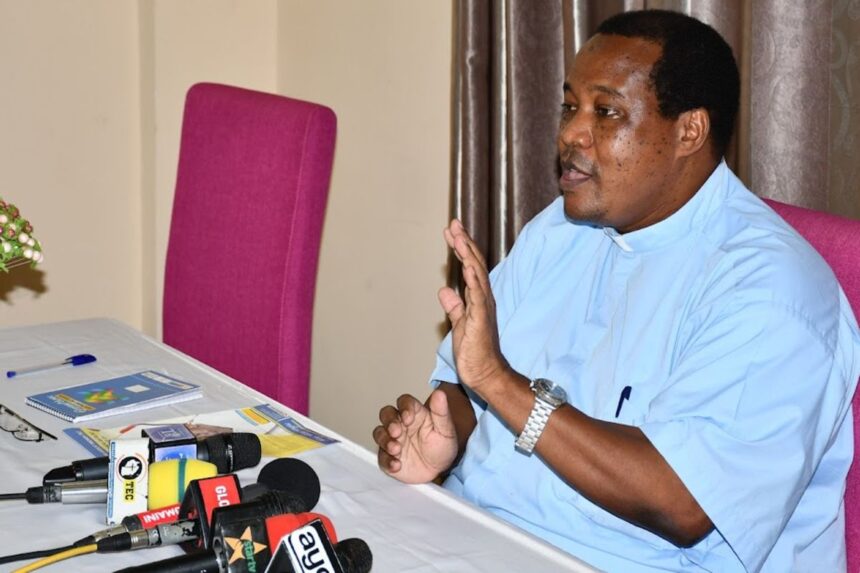In the midst of a national debate titled “Safeguarding and Nurturing National Unity During Political and Economic Transformations,” Father Charles Kitime’s perspectives have stirred intrigue. Held on June 19, 2023, his endorsement of DP World’s investment in Tanzania resonated, emphasizing the historical significance of the private sector in the country’s advancement.
The debate unfolded against the backdrop of fervent discussions surrounding DP World’s potential investment in Tanzania. Notable figures like businessman Rostam Aziz and renowned journalists, including General Ulimwengu, joined the discourse. Amidst these voices, Father Kitime emerged as an advocate for domestic private-sector investment, recounting its pivotal role in Tanzania’s development journey.
Click the video below and listen to Father Charles Kitime from 0:00 to 8:26 minutes.
Curiously, a twist transpired on August 18, 2023. In a document presented by Father Charles Kitime before the press, organized by the Tanzanian Episcopal Conference (TEC), his stance diverged strikingly from his June 19 declarations. Sections 4 and 5 of the TEC document staunchly opposed foreign private sector investors, advocating instead for the empowerment of local capacities.
The perplexing question lingers: Why this apparent volte-face within two months? On June 19, 2023, Father Kitime stood in support of private sector involvement, urging Tanzanians not to fear. Yet, in the TEC document of August 18, 2023, he castigated the very concept of foreign private investment.
Such a glaring shift naturally raises concerns, leading some to speculate whether Father Kitime could have been influenced by undisclosed interests. The TEC document of today sows seeds of doubt among citizens, as it deviates from the consistency one would expect in the statements of a prominent figure, shifting like a chameleon’s colours.
Alarming indeed is the spectacle of religious leaders, who are looked upon to provide moral guidance, seemingly stretching the truth in public discourse. This paradoxical narrative sheds light on the complexities of leadership and the dynamics shaping national development strategies.


